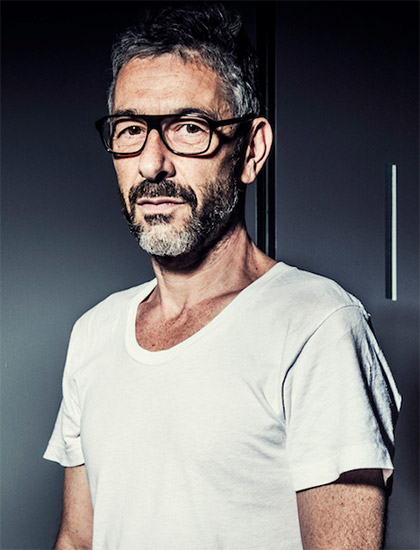
French sculptor Pierre Huyghe has been awarded the Nasher Prize for Sculpture 2017, an award given out by the Nasher Sculpture Center in Dallas to artists of recognition in the realm of contemporary sculpture. Last year the $100,000 prize was presented to Colombian-born artist Doris Salcedo, and was the year of the prize’s commencement.
Pierre Huyghe, A Forest of Lines (2008). An event at Sydney Opera House. ©Pierre Huyghe, Courtesy Paul Green/Nasher Sculpture Center.
Huyghe’s sculptures expand the definition of what the medium can encompass through the complex interaction of time-based materials—temporary and elusive as they are—such as fog, ice, parades, rituals, automata, computer programs, games, dogs, bees, and even microorganisms.
Huyghe’s work is most often described in association with relational aesthetics, a term coined by Nicolas Bourriaud to describe a theory of an art that subsists on human interactions, rather than the creation of actual objects. The artist’s work is thus received intimately, but politically as well. “[A]t this moment, when the environment and culture are so under threat, Huyghe’s imaginative, uncanny approach to the serious ecological and social issues facing our planet tie his oeuvre to the ancient purposes of sculpture: they possess the shamanistic quality which tips the mimetic into life,” says Nasher Sculpture Center Director Jeremy Strick in a statement.
Pierre Huyghe, L’Expédition Scintillante, Acte 1 (2002). A work including a Weather Score, snow, rain, fog, programmed precipitation
and an ice boat. ©Pierre Huyghe, Courtesy: Kub, Marcus Tretter/Nasher Sculpture Center.
As Nasher Prize Laureate 2017, Huyghe has been selected by a jury of influential peers, including sculptor Huma Bhabha and outgoing director of Tate museums in Britain, Nicholas Serota.
“As much as I can I am trying to stay away from the modernist idea of the autonomous object,” Huyghe said to the New York Times, “I’ve been trying to think in a way that doesn’t have to do with form but with things that are in formation, that in the process of changing.” In perfect relation to this point, Huyghe elucidates on a new project set to open at the Palais de Tokyo in Paris, organized by the artist Tino Sehgal, which will include the most extraordinary of all materials: living cancer cells, donated by the Curie Institute.
Pierre Huyghe, Untitled (Liegender Frauenakt)(2012) A work including: concrete cast with a beehive structure and warm which was an installation at Documenta 13, June 9 – September 16, 2012, Kassel, Germany. © Pierre Huyghe, Courtesy: the artist/Nasher Sculpture Center.